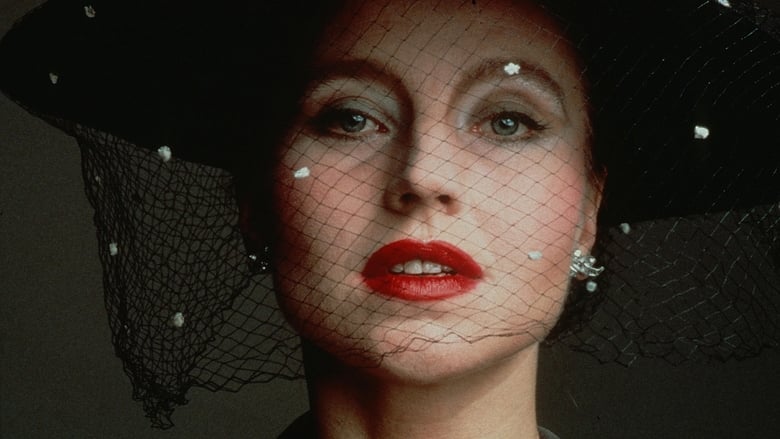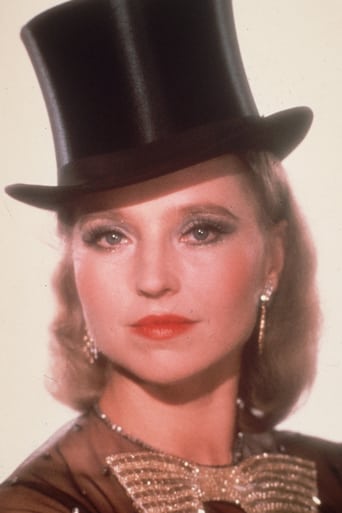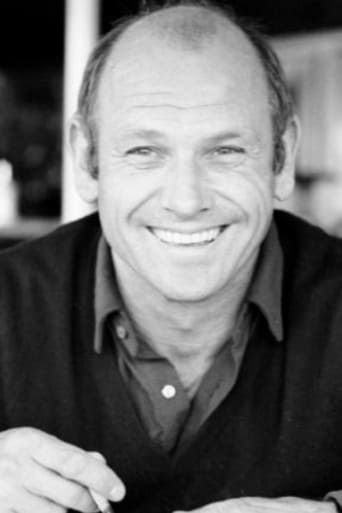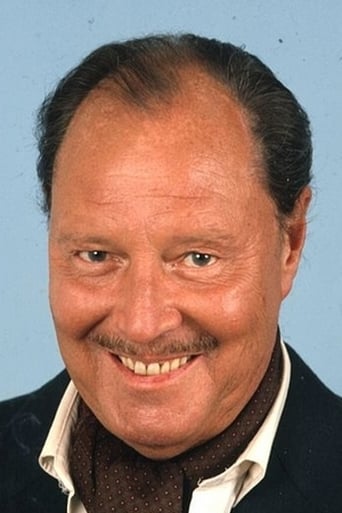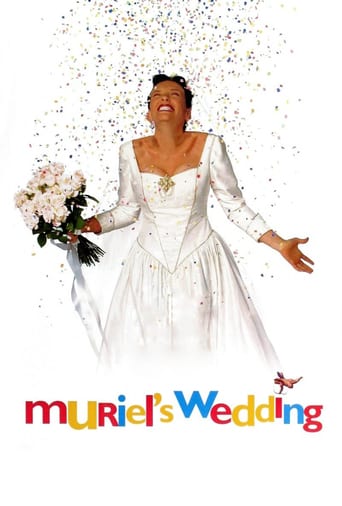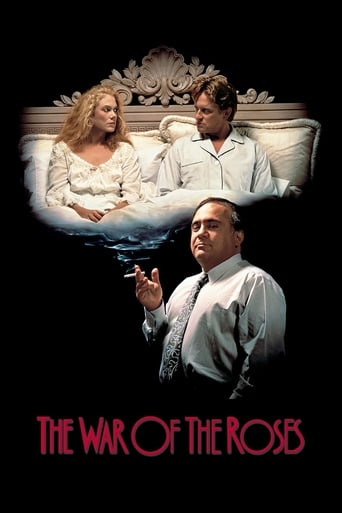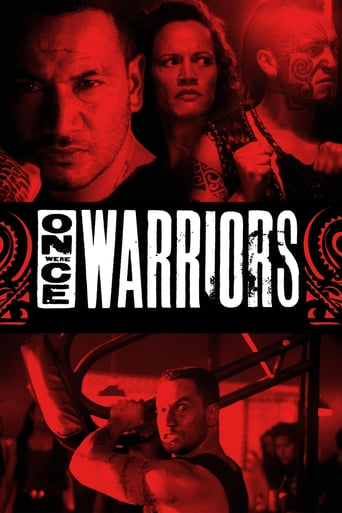The Marriage of Maria Braun (1979)
Maria marries a young soldier in the last days of World War II, only for him to go missing in the war. She must rely on her beauty and ambition to navigate the difficult post-war years alone.
Watch Trailer
Cast


Similar titles
Reviews
Good story, Not enough for a whole film
Wow! What a bizarre film! Unfortunately the few funny moments there were were quite overshadowed by it's completely weird and random vibe throughout.
The biggest problem with this movie is it’s a little better than you think it might be, which somehow makes it worse. As in, it takes itself a bit too seriously, which makes most of the movie feel kind of dull.
The story, direction, characters, and writing/dialogue is akin to taking a tranquilizer shot to the neck, but everything else was so well done.
Maria Braun got married right in the middle of combat all around her and her husband Hermann. An explosion ripped through the building, to begin with, and she and Hermann had to sign the papers on a pile of rubble on the street. Perhaps this may strike some as a heavy-handed metaphor for what's about to come: marriage on the rocks, so to speak. It's a betrothal where the husband goes off to war and is held in a Russian prison camp, unbenownst to the helpless but hopeful and proud Maria, who keeps standing by the depressing rubble of the train station as some come home, others don't, with a sign awaiting Hermann.Trouble arises, as happens in Rainer Werner Fassbinder's melodramas, and as its one of his best and most provocative, we see as Maria (uncommonly gorgeous Hanna Schygulla in this role) will do a two-face: she'll stand by her man, even if it means working at a bar for American GI's and, even still after she hears from a fellow soldier that Hermann has died will still stand by him as she sleeps with a black GI and comes close to bearing his child (that is, naturally, until he reappears and a murder occurs and he takes the rap so she can be safe), or working for a German businessman (effectively sympathetic Ivan Desny) and becoming his sometimes mistress and rising star in the company. Maria will do whatever it takes to be successful, but she'll always be married.It's hard to say there's anything about Maria that isn't fascinating. Money, sex, power, all of these become interchangeable for Maria. She's like the feminist that has her cake and eats it with a sultry smile: she gets to have a husband, more or less (actually a lot less until the last ten minutes of the film) while obtaining things- a man who dotes on her whenever he can, a new and expensive house with servants, a secretary, money- that others around her aren't getting due to already being with a man or too weak in a position to rise anywhere (such as the secretary, played interestingly enough by Fassbinder's own mother).Maria is sexy, confident, and all alone, with an idealized life going against a life that should be made in the shade. She says of the two men- the American soldier and poor old and sick Oswald- that she's fond of them, and at the same time will stick by those roses the confused and soul-searching husband Hermann sends from Canada, after being released from prison. She's casts a profile that a feminist would love to trounce, but understand where she's coming from and going all the way.Fassbinder employs this inherent contradiction, and moments with Maria appear to go against the conventions of a melodrama (for example, Hermann walking in on the jubilant and half-naked Maria and GI is just about a masterpiece of a scene, with Maria's reaction not of surprise or guilt but pure happiness to see that he's there let alone alive), while sticking to his guns as a director of such high-minded technique with a storyline that should be predictable. But it isn't really. It's like one big metaphor for a country that, after the war, couldn't really move on to normalcy. A few times Fassbinder puts sound of the radio on in the background, and we see Maria walking around her family house, hustle and bustle going on around her, and the radio speaks of a divided Germany, of things still very unsettled, of a disarray. Maybe the only way to cope is excess, or maybe that's just my interpretation of it.It's hard to tell, really, under Schygulla's stare face and eyes, anyway. It's such an incredible performance, really, one of those showstoppers that captures the glamor and allure of an old-time Hollywood female star while with the down-and-dirty ethic of a girl of the streets. Most telling are the opposing costumes one sees in one scene when she finally is with her husband, where she stars in one of those super-lustful black lingerie pieces and high heels, and then moves on to a dress without even thinking about it. That's almost the essence of what Maria is, and Schygulla wonderfully gets it down, a headstrong but somehow loving figure who is adored and perplexed by the men around her, sometimes in a single sentence. This is what Fassbinder captures in his wonderful first part of his "trilogy"; while I might overall prefer Veronika Voss as a masterpiece, Maria Braun is perhaps just as good as a character study, of what makes a woman tick and tock with (almost) nothing to lose.
This is the best of the 43 films that Rainer Werner Fassbinder made; his most successful at least. He was one of the leading directors in the New Germany after WWII.Hanna Schygulla was magnificent as the cold, calculating Maria Bruan, who lost her husband to the War, found him after she took an American soldier as a lover, lost him again after he went to jail for her, and found him agin at the end. Her day and a half marriage before he disappeared was longer than their time together at the end.Such is life. Things come and go, and you do the best you can. You can give up or adjust you way of thinking to survive. Even though Maria adjusted her thinking and did what she had to do, she never stopped loving Hermann, which makes the end such a tragedy.Excellent drama.
This first part of the BRD Trilogy has more passion and plot density than Lola, but less of the magic of Veronica Voss. The political musings have point to them: we see the shortages after the war, how the blackmarketers were able to control so much of the day-to-day life (delicious moment when Fassbinder, playing a grifter, tries to sell a complete set of Kleist to Schygulla, who remarks that burning books don't provide much warmth: she really wants firewood).There's some clumsiness in the first hour. The scene in Maria's room with the black soldier, interrupted by Hermann's appearance should go quicker. The train scene when Maria meets Karl Oswald falls flat when she insults the GI--I cringed, it was so bad. But as the story develops and the years go by, I was drawn more and more into this glossy, cold world.
Fassbinder's most lavish production sacrifices little of his talent for identifying and deconstructing a locus of suffering in long, mobile takes that somehow also act as social encapsulations; here, it's much more overt, since the story takes place in war-torn Germany at the end of WWII. The central character is a woman (Hanna Schygulla as Maria) who capitalizes on vulnerabilities (both economic and gender-related) to catapult herself up the ladder of a prominent textile corp. that makes coveted goods like lederhosen available to indigent workers (as she once was). Married amidst allied air raids, Maria and her new husband Herrmann are allowed a brief honeymoon before he's shipped out to the Russian front. In his absence, her despair is great: she spends most days at the train station, waiting for him to return. When he is reported dead, she abruptly stops grieving and takes a job as a barmaid/prostitute at a brothel catering to American GIs.When he returns, things get plenty messy, as circumstances (and his sense of noble self-sacrifice) conspire to keep them apart. The message is Fassbinder's M.O. writ large: "Love is colder than death." Not only is Maria contending with her own sanity and a husband largely incapable of loving her, but also with a country in deep flux with no discernible light at the end of the tunnel. Fassbinder is making some kind of statement on post-war Germany selling out to the highest bidder, but as with all his films, I tend to block those elements out and focus on the unbearable passions on display: Fassbinder's as evoked through his characters; his actors' as filtered through their real-life connections with Fassbinder. Taken together, his films can be either unbearable or indescribably mesmeric, often at once; this falls somewhere in-between, although definitely closer to the latter. While I didn't like it quite as much as The Bitter Tears of Petra von Kant or Katzelmacher, Maria Braun certainly has a greater scope and what's more, I could feel its passion and authentic detail to human emotions.


